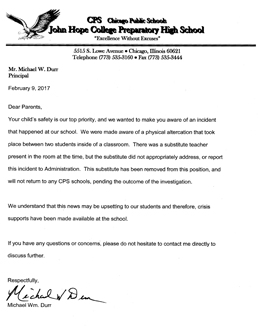News & Announcements
 |
NO SCHOOL Monday, February 20, 2023 is President's Day. No School for students. |
| Show All
» |
Counselor's Corner
| Show All » |
Exam Tips and Tricks: How to Study & Revise to Succeed
Studying, preparing, and revising for exams can be scary, especially when your exams are close and you haven’t covered much. Examinations do not have to be accompanied by anxiety or give you sleepless nights. You only need to employ the right techniques. Your exams can easily become a walkover with the right tips and techniques and some smart, hard work.
To help you prepare properly for your tests and exams, we have provided some helpful tips to help you succeed. So, keep reading!
How long should you study for an exam?
There’s no fixed answer to this question because students have varying memories and learning processes. However, students are advised to read for at least two hours daily during the academic session. Stick to this routine no matter how busy you are. Once your exams begin to draw close - four weeks at least, it is advisable to study for at least 4 hours per day.
This will ensure that you can cover all necessary topics before you go in for the exams. However, the duration of studying will depend on the bulk of the work you have to cover. Note that you should not study for too long at a stretch. Taking short breaks at intervals would be best to allow your brain to process all the necessary information.
How to get ready for a test: tested and tried ways to succeed at your test or exam
Regardless of your academic level, there are basic steps to take if you want to pass a test or exam well. Here are some basic helpful ways to get ready for an exam.
- Begin early
Starting early is one of the most important “how to do well in an exam” tips. When you start studying early, you are not agitated or trying to simultaneously cram a lot of information in your brain.
Doing this will ensure that you are not overworked or overstretched yourself or your brain. When you do this, you will discover that you can achieve more in less time.
- Have a timetable
Timetables ensure that you achieve all you need in an organised manner. They also ensure you do not give too much time to one course at the expense of another. To adequately cover what is needed, you must have a timetable for studying.
Avoid the temptation of disregarding your timetable. Ensure you are disciplined enough to follow your timetable strictly without any distractions.
- Study past questions
Studying past questions is how to prepare for a test you want to pass well. If you study past questions, you will easily identify the topics important to the course. However, it would be best if you did not do this to the detriment of other topics. Sometimes, lecturers can decide to change their pattern, and you might be unlucky to be part of that set.
Therefore, it is important that you cover all topics. However, you should still ensure that the key topics that reoccur in the past questions are thoroughly covered.
- Pay attention to classwork and assignment
It is not uncommon for lecturers and teachers to set their exam questions from classwork and assignments given in class. So, ensure you pay attention to that seemingly tough classwork and assignments. Don’t take them for granted because you might find them reoccurring in your exams. Even if the questions change, it might just be a little.
- Identify what works for you
Some people love to read in a quiet environment; others love to read in a noisy environment. Some people can only assimilate in the daytime; others can only assimilate at night. You must find out what works for you and incorporate that into your reading habit.
Find out your unique style of assimilation. Don’t try to copy others. This is why you need to begin early. If you do not begin early, you will find out your best way of assimilation too late.
- Rest, exercise, eat
These are important things to do before an exam. These activities allow your brain to process information faster. Eating junk or having marathon reading without enough rest will not help your brain.
Resting, exercising, and eating also qualify as what to do the day before an exam. They help you relax and prepare you for the long days or weeks ahead.
It’s not enough to know what to do a day before your exams; you also need to know what to do an hour before your exam - or even minutes before it. During this period, you should be dotting your I’s and crossing your T’s while clearing your mind. You may become blank after seeing the questions if you are agitated or extremely anxious when going for an exam.
Conclusion
How to mentally prepare for a test is to be prepared. If all stones have been turned, you will have no anxiety when the exam approaches. Give it all it takes, and you will be sure to succeed.
Special Notice
Featured Photo Album
-

Our School at a Glance
- Community Partners
- Diplomas Now
- AVID
- Talent Development
- City Year
- Communities in School
